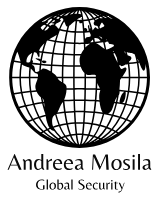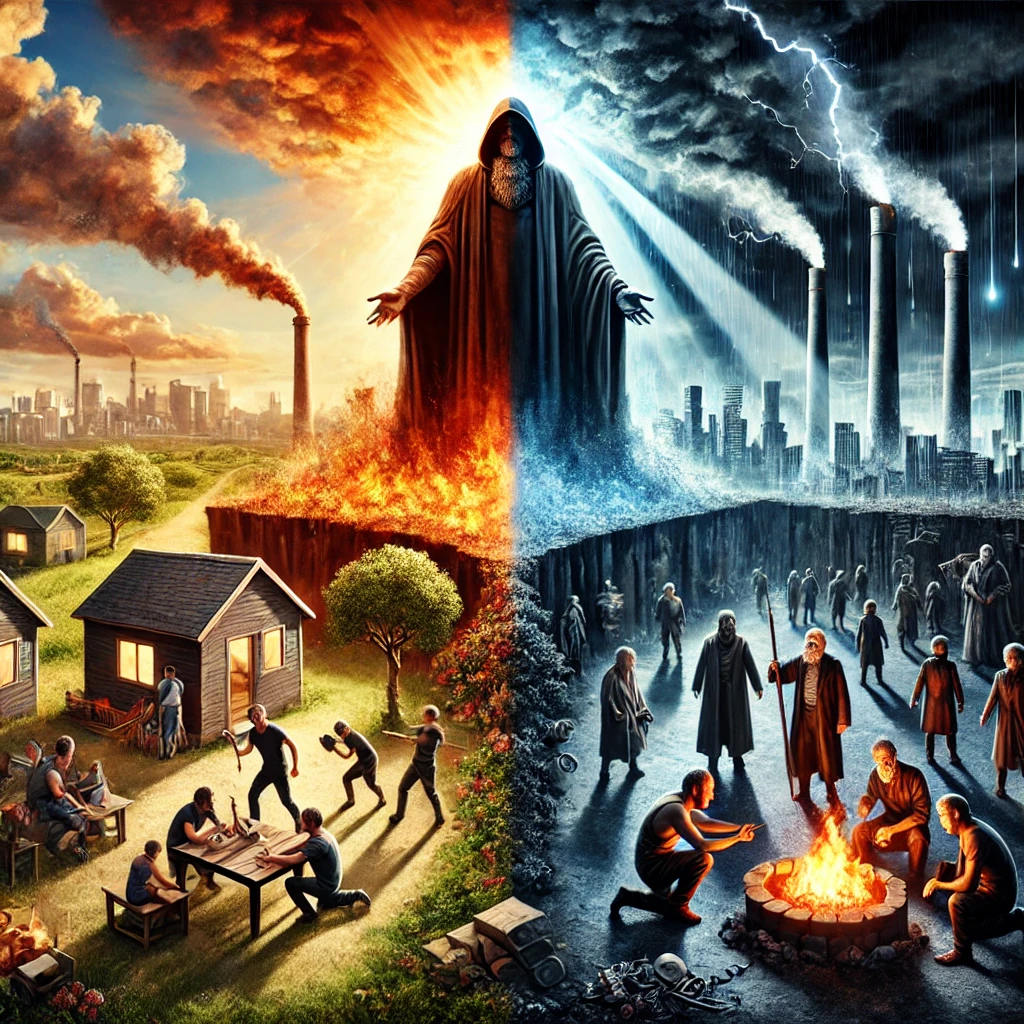Stephen King’s The Stand is a compelling exploration of leadership during an unparalleled crisis. As the superflu pandemic decimates the population, survivors rebuild their lives and societies, filling the void of collapsing governments. The novel vividly portrays how leadership can either foster resilience and unity or exploit fear and division.
This blog examines the role of leadership during crises, explores moral dilemmas leaders face, and draws parallels to real-world responses during pandemics and climate disasters.
BLOG IV – Pandemics, Power, and Planetary Peril: Global Security Lessons from The Stand
The Role of Leadership in Crisis
In The Stand, global systems collapse creates a power vacuum, and survivors naturally coalesce around leaders who promise stability and vision. Two contrasting societies emerge: The Boulder Free Zone, led by democratic ideals, cooperation, and shared governance, represents hope and moral leadership, and Randall Flagg’s Las Vegas Regime, built on fear, authoritarianism, and ruthless control, exemplifies how crises can breed tyranny. These contrasting societies illustrate the spectrum of leadership during crises and highlight leaders’ profound influence on the trajectory of recovery.
During the COVID-19 pandemic, leadership approaches varied widely. Some nations prioritized transparency and collective action, while others leaned into authoritarian measures, exploiting fear and division. The rise of populist leaders during global crises often mirrors the allure of Flagg’s authoritarian regime, as fear and uncertainty can erode democratic norms.
Discussion:
How does The Stand demonstrate the critical role of leadership in shaping societal outcomes during a crisis? What lessons can we learn about the dangers of authoritarianism in times of uncertainty?
Link to Global Security:
The pandemic-era contrast between nations underscores the need for strong, ethical leadership prioritizing public trust, inclusivity, and transparent decision-making.
Morality in Leadership: Ethical Dilemmas in Crisis
In The Stand, the leaders of the Boulder Free Zone grapple with moral decisions that balance individual freedoms and the collective good. Conversely, Flagg’s regime thrives on fear, manipulation, and disregard for ethical principles. The novel poses essential questions about the moral responsibilities of leaders during crises: How far should leaders go to ensure survival? When do individual rights give way to collective security? Can power ever be wielded without corruption?
Leaders during the COVID-19 pandemic faced similar dilemmas, such as imposing lockdowns, managing resource allocation, and balancing economic stability with public health. Missteps in these areas often eroded public trust and deepened societal divisions.
Discussion:
How do the ethical struggles in The Stand mirror real-world leadership challenges during pandemics? How can leaders uphold moral principles while navigating the complexities of a global crisis?
Link to Global Security:
Global leaders must cultivate ethical frameworks that guide decision-making in crises, ensuring that human dignity and rights remain central even under extreme pressure.
Populism, Misinformation, and the Erosion of Trust
Randall Flagg’s rule in The Stand thrives on manipulation and fear. He weaponizes misinformation to consolidate power, keeping his followers loyal and submissive. This reflects the modern challenges of combating misinformation and maintaining public trust during crises.
The COVID-19 pandemic saw an explosion of misinformation, from conspiracy theories about the virus’s origins to vaccine skepticism. Populist leaders have used crises to undermine institutions and spread divisive narratives, weakening societal cohesion.
Discussion:
What does Flagg’s regime reveal about the dangers of misinformation and propaganda in times of crisis? How can societies combat these threats to ensure informed and resilient communities?
Link to Global Security:
Investments in media literacy, transparent communication, and accountability are essential to counter misinformation and strengthen trust in leadership during global crises.
Resilience Through Collaborative Leadership
The Boulder Free Zone embodies the power of collaborative and democratic leadership in rebuilding societies. The emphasis on shared governance, community input, and moral values fosters trust and resilience.
Successful pandemic responses, such as those in New Zealand, have demonstrated the value of collaborative leadership and community engagement. Climate adaptation efforts often rely on local and inclusive decision-making to effectively address diverse needs.
Discussion:
How does the Boulder Free Zone’s leadership model reflect best practices for resilience and recovery in real-world crises? What role does community trust play in overcoming global challenges?
Link to Global Security:
Strong leadership rooted in collaboration and shared values can help societies recover from crises and build resilience against future threats.
Conclusion: Leadership as the Foundation of Security
Stephen King’s The Stand reminds us that leadership is the linchpin of recovery during global crises. The stark contrast between the Boulder Free Zone and Randall Flagg’s regime underscores leaders’ profound impact on societal outcomes.
In the real world, the challenges of pandemics and climate disasters require leaders who can balance power with morality, foster trust and collaboration, and prioritize human security over personal gain. As crises continue to test global systems, The Stand’s lessons are a powerful reminder of what is at stake and the leadership the world needs to navigate an uncertain future.
Previous in the Series: “The Stand” and the Collapse of Order: Global Security and the Fragility of Modern Systems, Human Security Crisis: Redefining Safety in a Post-Pandemic World, Nature Strikes Back: Climate Change, Pandemics, and Environmental Breakdown
Next in the Series: The Resilient Society: Lessons on Adaptability and Rebuilding After Global Collapse

